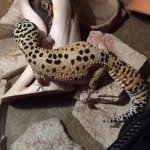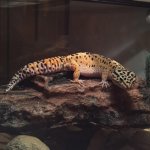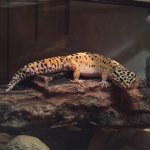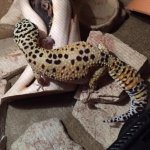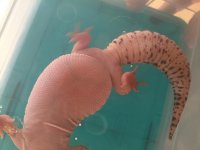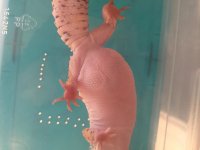I have a 2 year old (female I think) leo who for just about the past month has stopped eating. All other behaviors are normal (activity level, shedding properly, ect) and my husbandry is spot on. 90-93 degree warm hide with heat mat on thermostat, 80 degree warm zone regulated with overhead lights, moist hide/cool hide and 73-75 degree cool zone.
Now, being as though I'm a little concerned a purchased a digital scale so I could start weighing her. Her tails is pretty fat and I have noticed no weight loss but shes ~117g which I think may be a little overweight. My question is basically do these animal tend to regulate their own body weight? Meaning most animals eat for survival rather than pure pleasure so if the weight is there, is her food trigger basically slowing down? Just need some feedback as i'm seeing that this is a pretty common concern among the forum
Now, being as though I'm a little concerned a purchased a digital scale so I could start weighing her. Her tails is pretty fat and I have noticed no weight loss but shes ~117g which I think may be a little overweight. My question is basically do these animal tend to regulate their own body weight? Meaning most animals eat for survival rather than pure pleasure so if the weight is there, is her food trigger basically slowing down? Just need some feedback as i'm seeing that this is a pretty common concern among the forum


